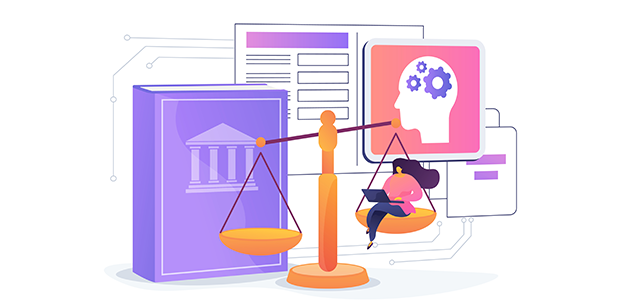
Top 4 ways AI is advancing M&A legal practice
Law firms are navigating an increasingly competitive landscape for deal-making amid a slowdown in global merger and acquisition (M&A) activity. This competitive landscape ups the ante for the adoption of cutting-edge technology that holds significant potential to make M&A lawyers more productive, and law firms are widely embracing artificial intelligence (AI) for M&A transactions.
The vast majority of law firm professionals (91%) anticipate that within the next 10 years, most M&A engagements in the legal industry will be completed using AI-based technologies. It is clear that law firms see significant value in AI, for good reason, although some firms remain unsure about the benefits that the technology has to offer to M&A practice. This may be attributed to inadequate skills among lawyers; they require more than just know-how regarding the use of technology.
With 71% of legal professionals anticipating that AI will play a role of high importance to the future of their M&A practice, firms will need to address many ethical considerations raised by the deployment of AI for legal work, ranging from obligations to protect data privacy to whether a firm should disclose their use of the technology to clients, a survey from Litera finds. Below, we’ll cover some of the productivity gains AI can bring to M&A practice.
Document automation
Legal professionals in the US, UK, and Canada are most likely to use AI for drafting – particularly in document assembly and manipulation.
The benefits of AI go beyond simple error-checking; technology has the power to transform the way that legal professionals create and analyse documents. By automating routine and repetitive tasks, AI accelerates the delivery of work product, improves accuracy, and frees up time for deeper legal analysis and client engagement.
AI also helps enhance client services as faster turnaround times and more accuracy lead to greater client satisfaction. Clients are taking notice – 70% of UK firms report regular client inquiries about AI use in M&A, compared to 55% in the US and 51% in Canada.
Negotiation platform
Negotiations are complex, often shaped by shifting valuations, regulatory uncertainty, and geopolitical dynamics. AI helps legal professionals prepare more effectively by surfacing insights from past deals, identifying fallback positions, and flagging non-standard terms.
Rather than replacing human judgment, AI enhances it – supporting faster, more informed decision-making throughout the negotiation process.
Document review and comparison
According to Litera’s survey results, contract review is the top use case that legal professionals see for GenAI to add value to M&A legal work, indicating a high level of commitment to leveraging GenAI to help enhance the practice. In this context, contract review refers to the analysis of legal documents during the drafting and negotiation phase – before contracts are signed – to ensure they reflect agreed terms, align with internal standards, and are free from inconsistencies or omissions.
AI tools streamline this traditionally manual process by identifying key clauses, deviations from standard language, and potential risks. This allows lawyers to focus on strategic issues and client advisory, while reducing the risk of oversight in high-volume reviews.
Due diligence automation
Due diligence is a foundational step in any M&A transaction – it helps buyers assess the target’s legal, financial, and operational risks, informs valuation, and shapes how risk is allocated in the final deal terms.
Litera’s survey finds that nearly half (49%) of legal professionals already use technology for due diligence. Many ore plan to invest in AI-powered tools in the next few years: 39% are considering purchasing data rooms, and 34% are considering diligence automation.
Reviewing large volumes of contracts and other documents is time-consuming and error-prone when done manually. AI streamlines this process by quickly identifying key clauses, variations from baseline language, and potential risks – giving legal professionals more time to focus on negotiation strategy and client advisory.
AI enables faster, more accurate review of large-scale contract and document sets – surfacing issues like ongoing disputes, change-of-control triggers, or hidden liabilities.
AI is already reshaping how M&A work gets done – and the firms that lean into it thoughtfully are the ones that will move faster, work smarter, and deliver top value to clients. Of course, leveraging AI requires the right training and transparency, but the payoff is clear: better outcomes, stronger insights, and more agile legal teams ready for whatever the next deal brings.
For more startup news, check out the other articles on the website, and subscribe to the magazine for free. Listen to The Cereal Entrepreneur podcast for more interviews with entrepreneurs and big-hitters in the startup ecosystem.

